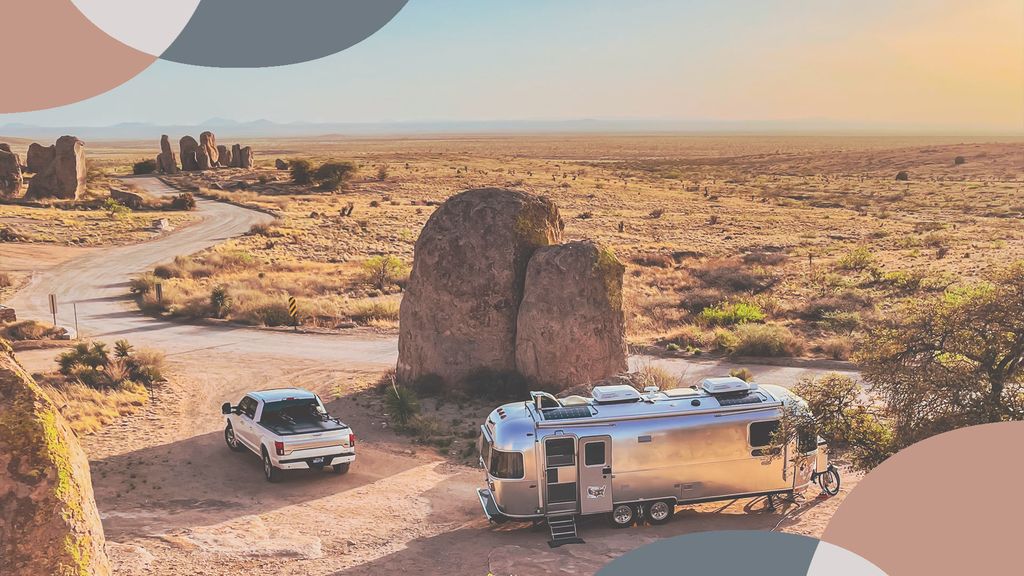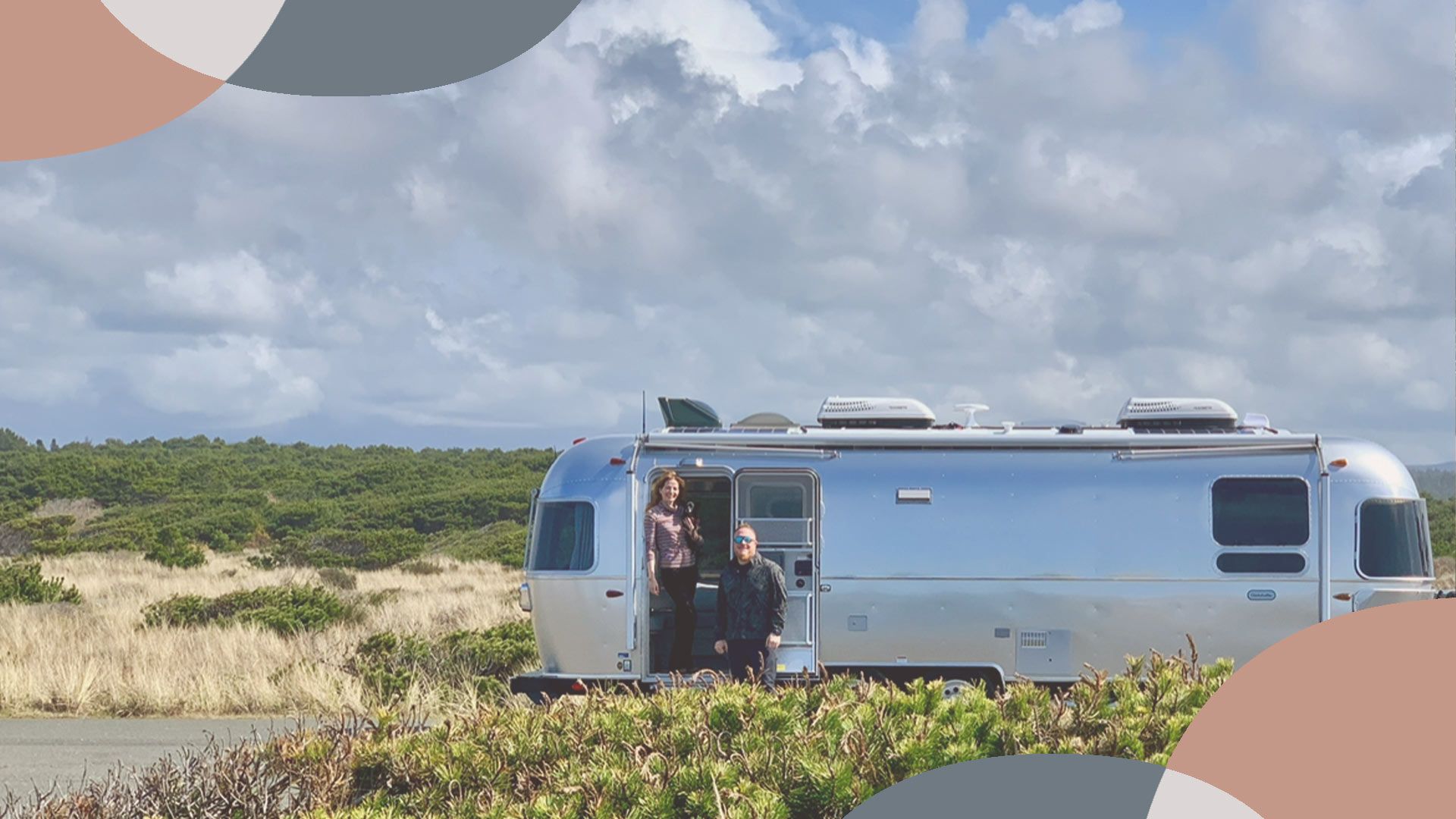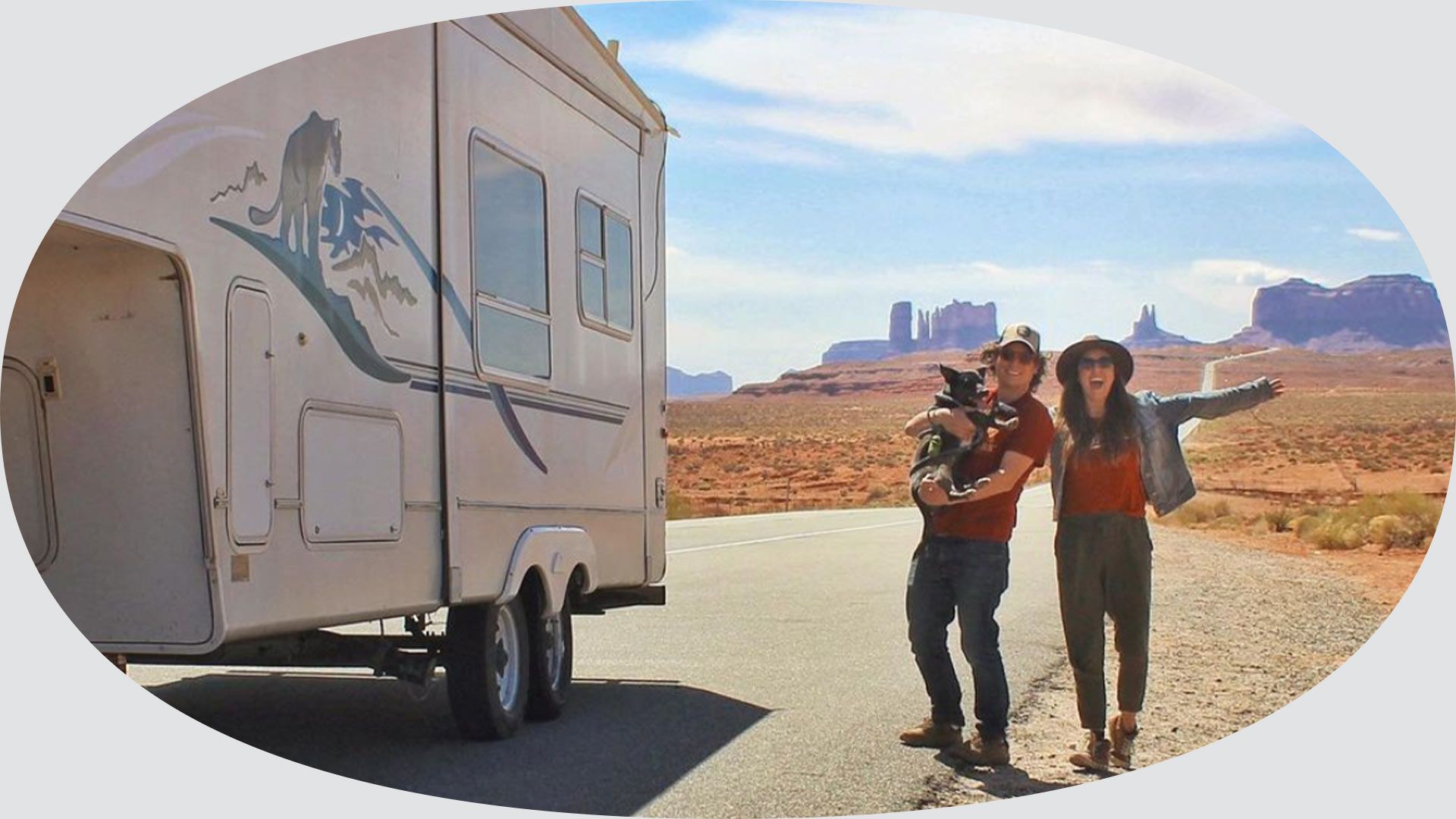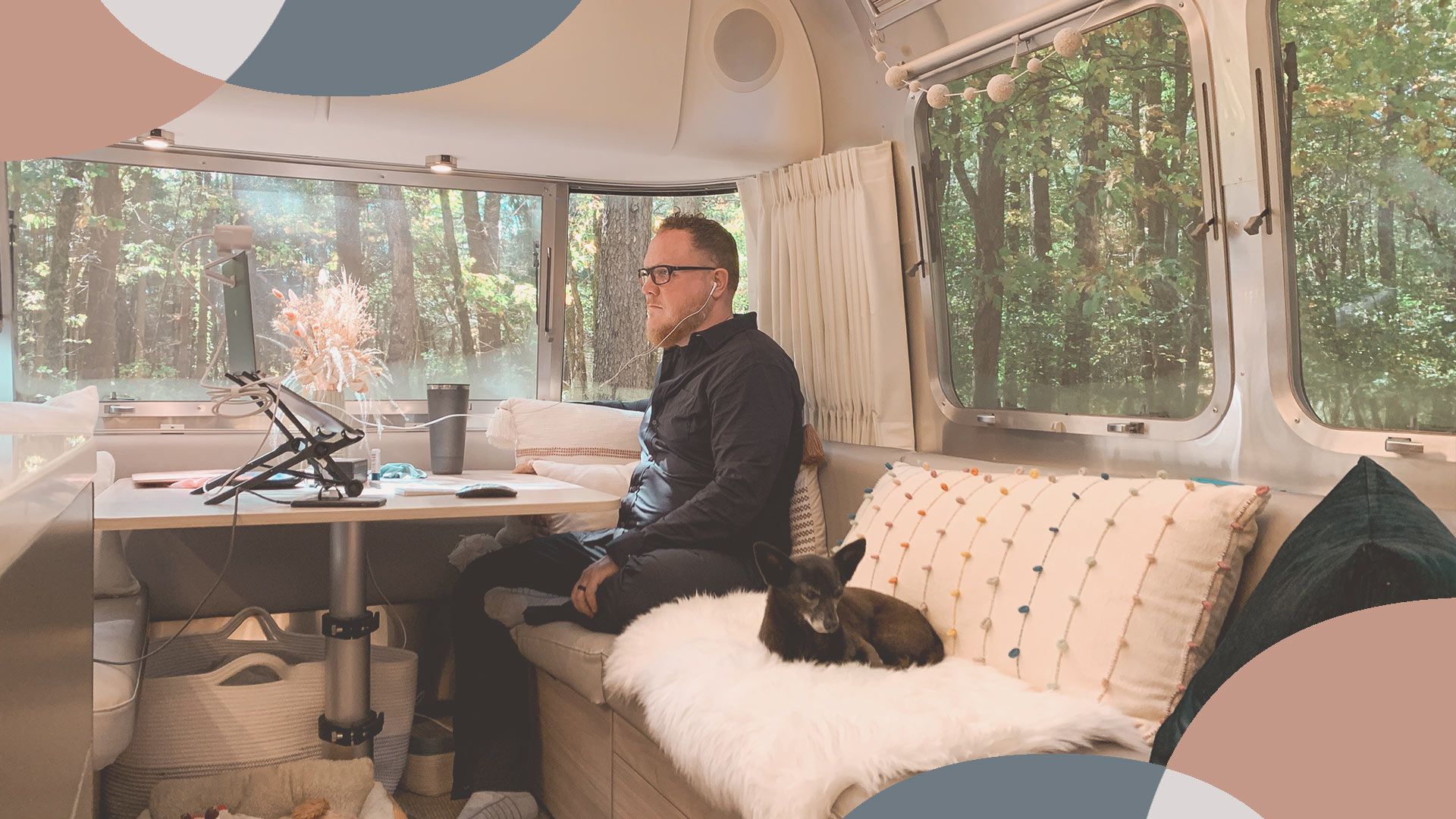How to Know If Working from an RV Is for You (And Pro Tips If It Is)

by Nathan Allen

If you’re like many remote workers, you’ve probably asked yourself, Could I really work from an RV or a van? A corporate culture increasingly accepting of remote work, coupled with momentous technology advancements, has led to unprecedented numbers of people exploring this lifestyle in some way.
It’s estimated that more than nine million people in the United States own a recreational vehicle, and more than one million currently live full-time in theirs. The hashtag #VanLife has been used on social media six million times (and counting). It’s become such a thing that Airstream has recently created a trailer model with a built-in office.
So is full-time (or near-full-time) RV living for you? Read on to help you answer that question.
Take a Test Drive … Literally
Jesse Chambers, founder and CEO of wrkfrce, has been living and working in his 27-foot Airstream since February 2019. After more than a decade working at StubHub, AOL, and Verizon Media, Jesse wondered if he could move from a hybrid remote work setup to launching his own media company while living in an RV.

The idea sounded cool and interesting on paper, but Jesse and his wife, Lindsey, knew it would be a massive change in real life. So, in late 2018, they and their Chihuahua, Marco, decided to test it out. “My wife and I had never stepped foot in an RV before,” Chambers recalls. They rented a 23-foot Airstream and drove it two and a half hours from their home in San Francisco to Big Sur, where they planned on camping and working for a few days.
Despite having to dodge some rain and internet connectivity issues, the couple loved their experience. “That trip confirmed for us that we could really see ourselves living this way and that working remotely from the road was entirely possible.”
Determining If RV Life Is Right for You (and Your Family)
Full-time work from an RV can be truly life-altering. It might mean selling a house—or at least subletting it. If you have a family, it might mean homeschooling your kids, or customizing the vehicle for your spouse’s vocation, or setting up new procedures and protocols to stay in touch with parents or extended family members. It definitely means that change, the unknown, and novel situations become constants. As Matt Allen, a data analyst from Buffer, wrote of his decision to move fully to RV life, doubt is a certainty if you decide to relocate to a portable home.
“The longer we planned and researched, moments of doubt crept in,” Allen shares. “We’ve traveled a bit, but never for more than a week or two at a time. We might have jokingly mentioned ideas like this in passing before, but this time was different. Were we just romanticizing the idea? Why did we feel so compelled to make a drastic life change like this?”
These are all valid questions and points you should consider when contemplating a life of full-on nomadism.
Factor in the Costs
Living out of a van might seem relatively inexpensive, but the initial investment can be pricey. Costs can range from $10,000 (or even less) for a pop-up camper to $750,000 for a class-A rig with all the bells and whistles.

Beyond purchasing your vehicle of choice, you’ll want to estimate the actual costs of hitting the road. “RV life can get expensive,” says Rachael Lyons, who has been traveling the country with her husband, Jesse Lyons, in a fifth-wheel camper while working full-time and writing about their experiences since 2018. “It can certainly be a cheaper lifestyle than a home or apartment, but there are many little things that add up.”
For example, not having the storage or refrigerator space to buy groceries in bulk can increase food costs. Gas costs accrue quickly, too, especially when you’re traveling long distances in rigs not known for fuel efficiency. Campground fees and their associated hookup costs are also a factor.
In addition to the cost of fuel, there are inevitable upkeep and maintenance costs. “You also need to budget for repairs,” Rachael warns. “When your home is frequently enduring ‘earthquakes’ by rolling down the road, it's not a question of if something will break, but when,” even if you purchase a brand-new vehicle.
That said, being your own “building superintendent” can go a long way toward lessening your load and your expenses. Ingenuity, handiness, and problem solving with a set of tools are imperative skills on the road. “You're probably not going to last long in this lifestyle if you get derailed by a flat tire or broken pipe,” Rachael adds.
For some money-saving ideas, check out the Two Wandering Soles blog, where you’ll find tips on setting a daily budget; avoiding popular spots during holidays; and finding free camping options like national forests, Bureau of Land Management areas, and even Walmart parking lots.
Run Your Plan by Your Coworkers
Before you set out to work from the road, make a work plan that you share with your supervisor, coworkers, or team members you manage. “It’s crucial to be up front,” Chambers advises. “You don’t want to surprise your manager or a client by saying that you can’t come in to the office today because you’re in Montana. In my experience, sharing the fact that I live and work from an RV really opens up the conversation and has allowed me to quickly deepen many new relationships.”
The Lyonses agree that setting up a viable work plan is the first step in successfully transitioning to life on the road. “Even if you already work remotely, your boss might feel differently if you're both remote and nomadic,” Rachael points out. Both she and her husband, Jesse, had corporate jobs when they transitioned. “This lifestyle brings up questions of connectivity reliability, professional and quiet environments, time zones, and scheduling business trips.”

So be prepared with all the details when you approach your employer with your work proposition, Chambers recommends. “Share how you plan to remain connected and available to your colleagues and business partners. Share how you plan to get your work done, and the cadence of check-ins.”
Connectivity Is King
One reason to map out your work plan up front is that communication can become tricky when you’re mobile. Chambers learned from the get-go how important—and finicky—campground internet can be. “One of the crucial things for us in RV living is being able to work, and connectivity is critical for that.”
Chambers calls it “chasing data” and says getting a “redundancy of networks” is essential. He uses the OpenSignal app to forecast cell signal and the Campendium app, which, he explains, is “sort of like Yelp! for RV and tent camping” to find reviews on connectivity and signal strength in a given area. Joining communities of RVers on Facebook, Instagram, and YouTube has also been beneficial to the Chamberses.
Rachael concurs that technological considerations are paramount. “Most RV digital nomads have several options to get online, including hot spots, boosters, multiple data plans, and more. Mobile internet plans and technology are always changing, so we always refer folks to the Mobile Internet Resource Center because it keeps track of the latest developments.”
Flexibility and problem solving are musts when working from the road. “It’s a reality for us to plan our travels around connectivity. And it’s also, sadly, sometimes a reality to get somewhere and realize your planning didn’t pay off and you have to adjust,” Jesse says. Coming up with workarounds, like leaving an area or managing with a poor signal, is just part of the lifestyle.
No Need to Reinvent the Wheel to Try Life Behind It
People have been working out of recreational vehicles for years. There’s lots of information out there that you can tap into when researching this new way to live and work.
Chambers advocates just taking the lifestyle for a spin. “My advice to people who are curious is, just try it. We had no prior RV-ing experience, and not only do we really love it, we’ve been able to work effectively while we travel. There are tens of thousands of people working full-time while RV-ing, and they’ve figured out a lot of things already. So you just have to learn what they’ve already figured out, and whether it’s from YouTube or Facebook groups or a conversation with the person in the campsite next to you, that’s easy to do. The community is very willing to share their knowledge.”









